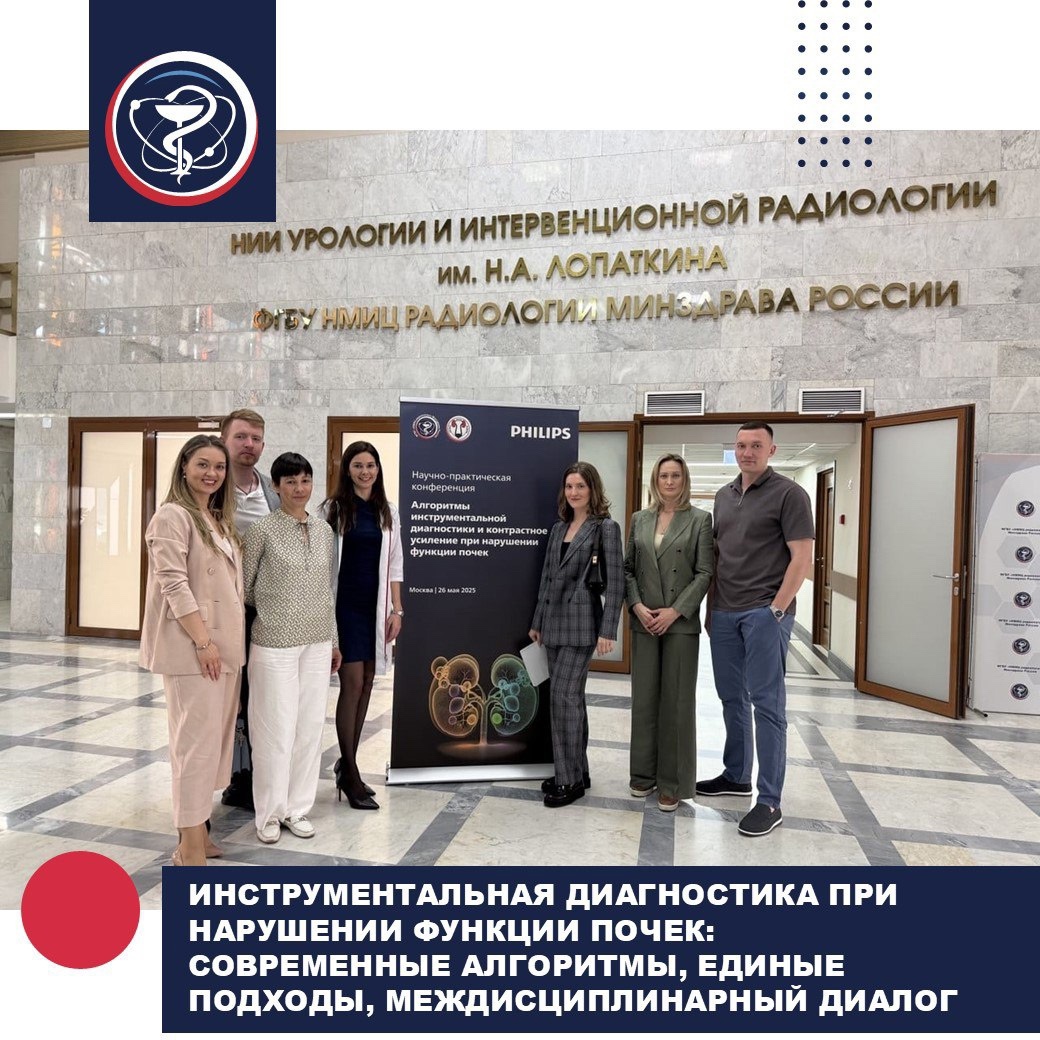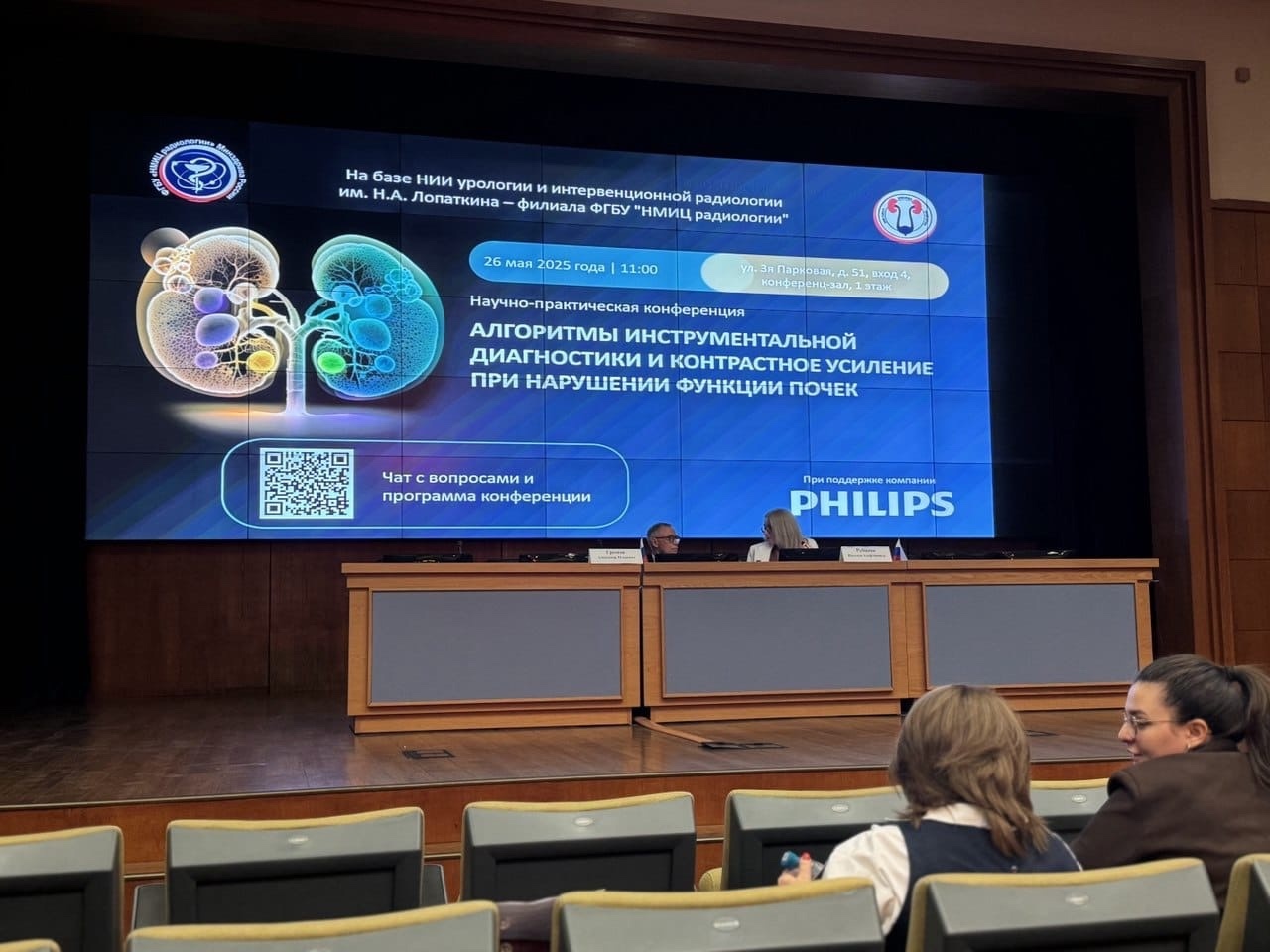INSTRUMENTAL DIAGNOSTICS IN RENAL DYSFUNCTION: MODERN ALGORITHMS, UNIFIED APPROACHES, INTERDISCIPLINARY DIALOGUE
On May 26, the first scientific and practical conference “Algorithms of instrumental diagnostics and contrast enhancement in renal dysfunction” was held at the N. Lopatkin Scientific Research Institute of Urology and Interventional Radiology (SRIUIR) – the branch of the FSBI “National Medical Research Radiological Centre” of the Ministry of Health of the Russian Federation.
The event was held in a hybrid format: face-to-face reports and discussions were supplemented by online broadcasting. The conference united a wide range of specialists – doctors from federal, regional and oblast medical institutions were present in the hall, and listeners from different regions of Russia, as well as from Uzbekistan and Kazakhstan joined the online participation.
“The conference was devoted to topical issues of imaging in renal dysfunction, including modern protocols of instrumental diagnostics, approaches to the use of contrast agents in patients with chronic kidney disease, diabetes mellitus, reducing the risks of nephrogenic systemic fibrosis and contrast-induced acute kidney injury, – said one of the conference organizers, head of the department of computed tomography and magnetic resonance imaging Alexandra Golbits. – Special attention was paid to the multidisciplinary approach and algorithms of clinical decision-making in patients with impaired renal function”.
The program of the event included two thematic blocks and focused on key aspects of instrumental diagnostics in patients with renal dysfunction. Contraindications and risks associated with the use of contrast agents in CT and MRI, the possibilities of modern methods of radiation diagnostics to assess the morphological and functional state of the kidneys, as well as algorithms for preparing patients for contrast-enhanced studies were discussed.
The reports were accompanied by informative discussions with participation of specialists of related fields – radiologists, radiologists, urologists, nephrologists, endocrinologists, oncologists. Complex clinical cases were considered, peculiarities of patient routing and practical implementation of multidisciplinary approach in diagnostics and choice of tactics of management of patients with renal dysfunction were discussed.
“The event has become an important platform for sharing experience between doctors of different specialties. Such meetings help to find joint solutions and make diagnostics safer and more effective,” summarized Alexandra Golbits.










